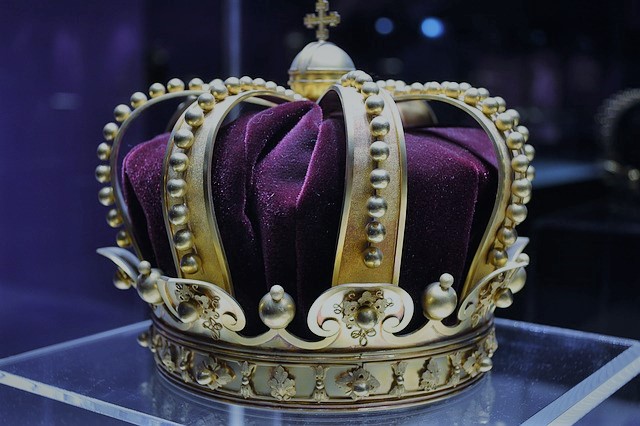Crammer's Guide - Power in Romeo and Juliet
The Prince
The prince is a figure who hangs over the story like a shadow. He does little but his appearances at the beginning, middle and end of the play, are decisive. And even when he is is not present he influences everything. We see his system of justice present in the opening confrontation when Sampson says "Is the law of our side if I say ay?".
The Prince is forced to intervene directly at the end of Act 1 Scene 1, showing the limitations of his power. He tells us that anyone who brings violence to Verona's streets will pay for it with their lives is referenced by Romeo ("the prince expressly hath / Forbidden bandying in Verona streets") when Mercutio and Tybalt begin to fight in Act 3 Scene 1 .And yet the prince sometimes appears weak. No one is punished for the brawl in Act 1 Scene 1, and, after the deaths of Mercutio and Tybalt, he says "Mercy but murders" and yet he only exiles Romeo. And we are left to wonder whether perhaps, all of the violence in the play stems from the prince's weakness.
The opposite view is to see the prince as a pragmatic ruler, who sanctions his nobles as much as is wise. We could argue that Prince Escales' actions maintain the peace in difficult circumstances, and the "glooming peace" he announces at the end of the play is proof that his actions were, in fact, for the best.
The patriarchs
In the play we see the death and tragedy come about as a direct result of the tension between the two houses. At the very start of the play Sampson says "A dog of the house of Motague moves me". So we see that violence is linked to the powerful families.We also see the two patriarchs, Capulet and Montague, encourage the violence ( "Give me my longsword"). Mercutio explicitly blames the rivalry between the two houses as a cause of his death in his dying curse, "A plague a' both your houses!". And of course, if it were not for the rivalry between the two families, Romeo, a noble of high status and heir to Montague's fortune, would have make a very good husband for Juliet.Throughout the the play, we see more of Capulet than of Montague, and we could argue that Montague appears to be the more reasonable of the two. But remember that Montague's power and authority is not challenged in the same way that Capulet's is.Nevertheless Capulet does use power in a way that has negative consequences. When his status and authority is brought into question, following Tybalt's untimely death, he immediately seeks to marry Juliet to Paris and establish a link to Prince Escales. He treats her as a commodity "I'll give thee to my friend", and threatens her with violence, "my fingers itch".
If it were not for the rivalry between the families, we might expect Capulet to show more restraint. So we can say that the rivalry and the obsession with preserving power and status, Juliet would not seek the friar's help. She would not drink the potion, and the play's tragic end would be avoided.
While at the end of the play, Prince Escales declares a "glooming peace", and Capulet and Montague declare their intention to build golden statues of Romeo and Juliet, we see in there competitive responses, that the prospects of an end to their rivalry are far from being a certainty.
Romeo and the apothecary
The final way in which we see power exercised in the play is in Romeo's treatment of the apothecary (a chemist / drug-store owner). When Romeo decides to buy poison, he knows that to sell poison carries a sentence of death. So he deliberately selects the "needy" apothecary, whose shop-front is beaten and run down, to sell him what he wants.The apothecary doesn't want to sell the poison, but Romeo says "I pay thy poverty, and not thy will." He too is prepared to use power to meet his own goals, and like Capulet, he denies the will of another. So in both cases we see that power rashly used dehumanises those it is used on.
The only difference is that the despairing Romeo recognises the destructive effects of money and power, when he tells the apothecary that gold is "worse poison to men's souls, Doing more murders in this loathsome world, Than these poor compounds that thou mayst not sell."
Summary
Prince Escales manages the rivalry between the two families. Some see him as weak. Others see him as skilfully manipulating them.The rivalry between the Montagues and Capulets has powerful destructive effects. It is responsible for all of the deaths in the play, and it is the reason Romeo cannot openly woo Juliet.
Romeo uses his own power and status to control the apothecary. Unlike the other characters, he recognises that power has a poisoning effect on those that use it.



0 Comments